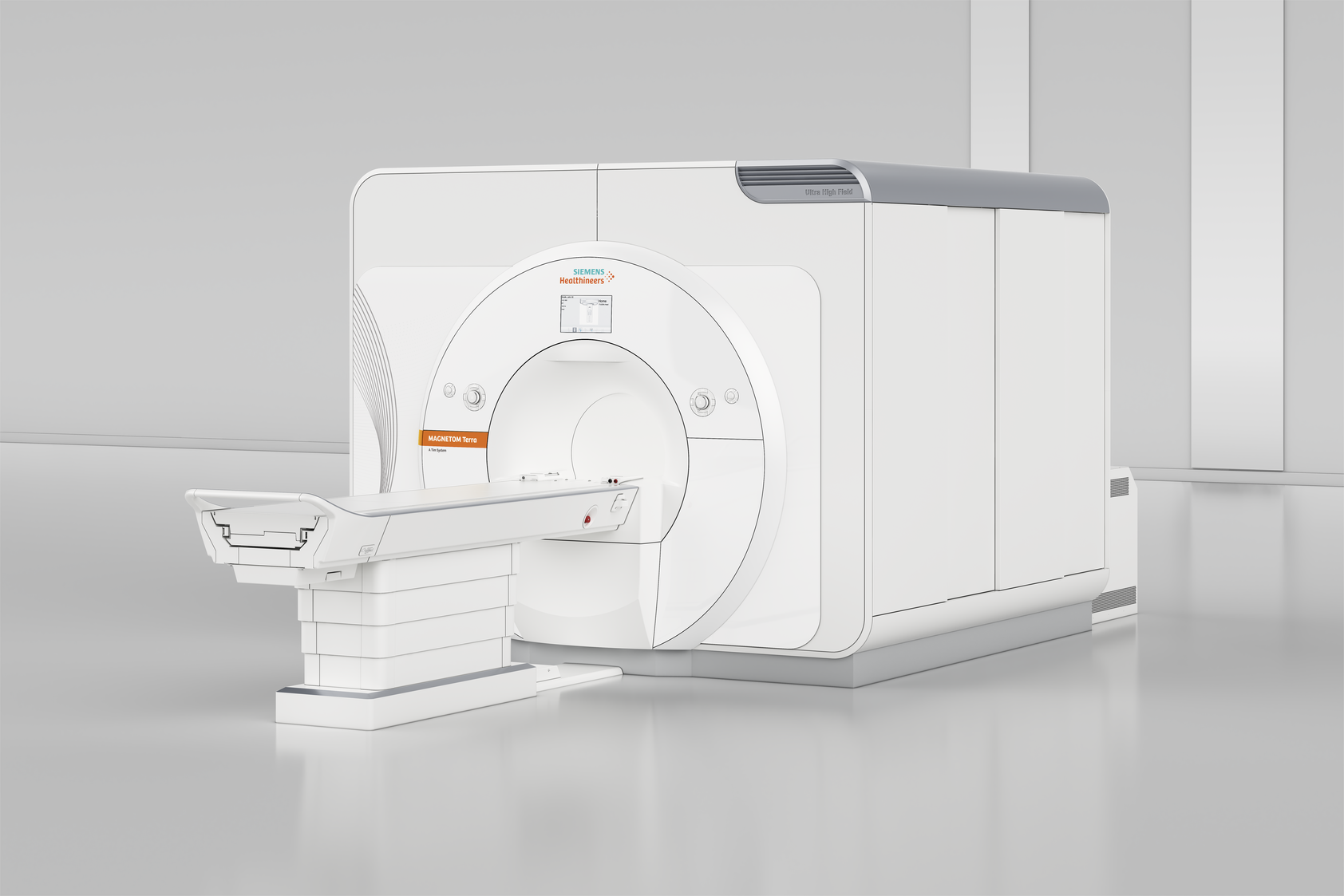-
1st clinical 7-Tesla MRI scanner in North America will enable Mayo Clinic to achieve higher-resolution imaging for patients
ROCHESTER, Minn. — Mayo Clinic will have the first clinical 7-Tesla MRI scanner in North America that has been cleared by the U.S. Food and Drug Administration (FDA). This MRI scanner, the MAGNETOM® Terra, will be operational at Mayo Clinic later in 2017. The manufacturer, Siemens Healthineers, received FDA clearance on Oct. 12 for clinical use of the scanner to image the head and knee. Mayo Clinic will be the first medical center in North America to offer patients advanced diagnostic imaging using an MRI scanner with the strongest magnetic field available for clinical use.

This 7-Tesla MRI scanner provides more than twice the magnetic field strength of a conventional 3-Tesla scanner to deliver ultrafine image resolution of the head and extremities. It is intended for patients weighing more than 66 pounds. MRI scanners such as the MAGNETOM Terra use magnetic fields, measured in Teslas, and radio waves to create detailed images of organs and tissues in the body. Tesla strength, in part, determines the amount of anatomical detail that can be obtained in the images.
Mayo radiologists anticipate that they will use this MRI scanner for sophisticated neurological and musculoskeletal imaging to, among other applications:
- Achieve higher-resolution imaging of the brain to visualize small lesions in patients who present with trauma-related micro-hemorrhages or multiple sclerosis lesions that might not be detected at lower field strengths.
- Visualize the anatomic source of seizures in previously undiagnosed patients, enabling the possibility of surgical cure.
- Improve anatomic detail and support a higher degree of confidence in noninvasive diagnosis when imaging cartilage and other tissues of the knee.
“This is an incredibly exciting addition to our fleet of MRI scanners and provides our physicians an additional transformational resource to help ensure that our patients receive the correct diagnosis and treatment,” says Kent Thielen, M.D., chair, Department of Radiology. “The 7-Tesla MRI scanner also provides our institution access to a tremendous tool that will propel our innovations in medical imaging.”
The 7-Tesla MRI scanner is another in a long line of imaging and image-guided therapeutic innovations. For example, Mayo Clinic had the first clinical X-ray CT scanner in North America in 1973 and, more recently, the first FDA and Centers for Medicare & Medicaid Services approval for a positron emission tomography imaging agent to identify recurrent prostate cancer.
“With MAGNETOM Terra, we make 7-Tesla MRI available for clinical use for the first time, which is an exciting milestone for health care,” says Christoph Zindel, M.D., senior vice president and general manager of magnetic resonance, Siemens Healthineers. “Mayo Clinic is a long-valued collaborator of Siemens Healthineers, being at the cutting-edge of research and clinical care. We are very proud to deliver the first clinical 7-Tesla scanner in North America to an institution as high caliber as Mayo, who sees the value of 7-Tesla to support clinical diagnosis on the way toward precision medicine.”
###
About Mayo Clinic
Mayo Clinic is a nonprofit organization committed to medical research and education, and providing expert, comprehensive care to everyone who needs healing. For more information, visit mayoclinic.org/about-mayo-clinic or newsnetwork.mayoclinic.org.
MEDIA CONTACT
Ethan Grove, Mayo Clinic Public Affairs, 507-284-5005, newsbureau@mayo.edu







